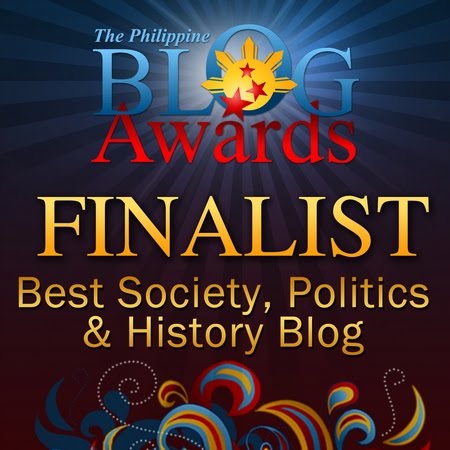
Bagong bayani?

Even Pepe Rizal needed political backing to become a national hero.
Just a few days ago, the House of Representatives approved on second reading a joint congressional resolution which elevated the late former President Corazón C. Aquino into the echelon of Philippine national heroes.
Almost every one agreed that the late icon of democracy deserved such recognition (why just now)? But before the second reading ever happened, Senator Pía Cayetano shared what was perhaps the most profound statement regarding this issue:
“Our concept of heroes is people from the past, and many people especially the young ones cannot relate to the lives of many of our heroes. The usual heroes are like based on legends,” she said at a regular forum in the Senate.
“So I think it would be wonderful to have a present, modern-day hero, and I am extremely pleased that the person we are considering for recognition as a heroine is a woman,” she said.
It is now high time, Cayetano said, that Filipinos should recognize Aquino by declaring her a national hero.
“And I can’t think of any person befitting of that honor and title,” she said, “I do support these moves to recognize her as a national hero.”
However, her following statement betrayed her lack of knowledge in Philippine history:
Cayetano said it would be a first in history if a resolution, declaring Aquino a national hero, would be approved by Congress.
No legislation, she said, had been approved by Congress proclaiming any Filipino historical figure, including Jose Rizal and Andres Bonifacio, as national heroes.
“If President Cory is actually proclaimed a national hero, then she would be the first. She will not be just honored as national hero but also officially as a national hero,” Cayetano added.
This abovementioned assertion is incorrect.
Back in 1901, when the Philippines was still under the American flag, then Civil Governor William Howard Taft (who later became the 27th US President) suggested to the Philippine Commission (the precursor of today’s Philippine Senate) that the Filipinos should have a national hero. The Free Press reported about this on December 28, 1946:
And now, gentlemen, you must have a national hero. In these fateful words, addressed by then Civil Governor W.H. Taft to the Filipino members of the civil commission, Pardo de Tavera, Legarda, and Luzuriaga, lay the genesis of Rizal day…
In this subsequent discussion in which the rival merits of the revolutionary heroes were considered, the final choice — now universally acclaimed a wise one — was Rizal. And so was history made.
Historian-scholar Dr. Theodore Friend (who is currently a Senior Fellow at the Foreign Policy Research Institute in Philadelphia), in his award-winning book Between Two Empires: The Ordeal of the Philippines, 1929-1946, wrote that Taft “with two other American colonial officials and some conservative Filipinos, chose him (Rizal) as a model hero over other contestants” such as Andrés Bonifacio, Emilio Aguinaldo, Marcelo H. del Pilar, and Apolinario Mabini.
Also, leftist historian Renato Constantino recorded in his pamphlet Veneration Without Understanding that this decision to sponsor Rizal was implemented with the passage of the following Acts of the Philippine Commission:
(1) Act No. 137 which organized the politico-military district of Mórong and named it the province of Rizal “in honor of the most illustrious Filipino and the most illustrious Tagalog the islands have ever known,”
(2) Act No. 243 which authorized a public subscription for the erection of a monument in honor of Rizal at the Luneta and
(3) Act No. 345 which set aside the anniversary of his death as a day of observance.
There was even an election done to choose who should be the Philippine National Hero. In the end, it was a close fight between del Pilar and Rizal. The truth is del Pilar won in the voting. But the result was overruled mainly because of the dramatic way Rizal died (compared to del Pilar who died in a hospital in Barcelona, Spain).
But even more importantly, before the Americans invaded our country, President Emilio Aguinaldo in 1898 declared that 30 December (the date Rizal was executed) should be an annual day of national mourning. Thus, even before the Americans thought of declaring Rizal as a national hero, the first Philippine Republic have already recognized the gravity of his worth.
So there. Politicians should be extremely careful in making statements, especially when they quote historical events. This is because so many facts have already been distorted in Philippine history.
Going back to the issue of making Tita Cory as a national hero (and to wrap things up), Quezon City Representative Matiás Defensor couldn’t have said it any better: “Being a national hero does not require congressional imprimatur, it’s in the hearts and minds of the Filipinos”.

![Lake Dillon and a Tree [In Explore] Lake Dillon and a Tree [In Explore]](https://live.staticflickr.com/65535/53731226172_4004cbfea4_m.jpg)





Jose Rizal is greatest hero of history
LikeLike